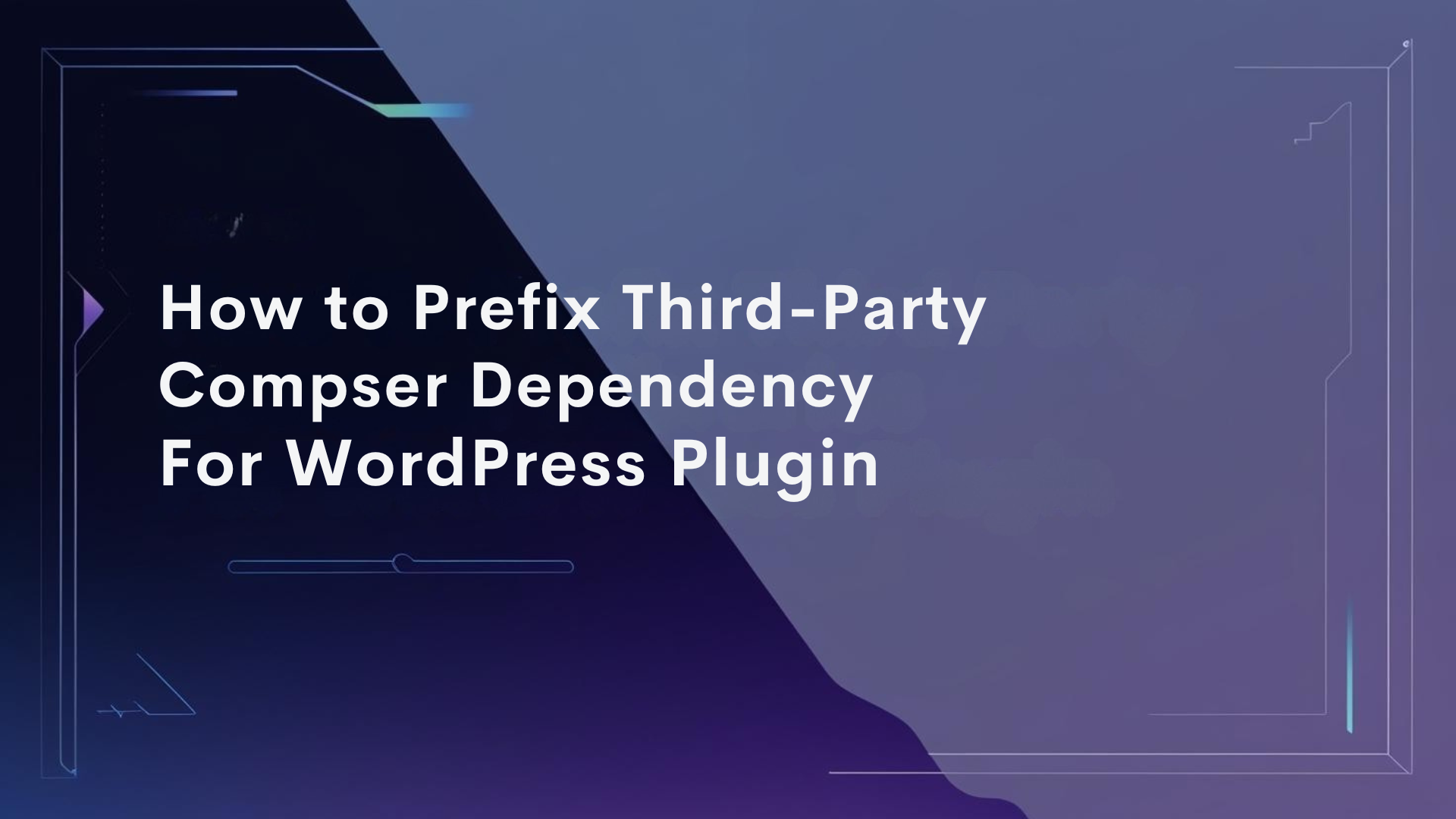When developing WordPress plugins, you often need to prefix third-party composer libraries to avoid conflict. However, conflicts between third-party libraries can arise when multiple plugins include different versions of the same library. This can lead to unexpected behavior or even fatal errors, making it crucial to isolate dependencies properly.
In this blog, we’ll explore how to resolve such conflicts using manual namespacing and automation with PHP-Scoper.
The Problem: Conflicting Dependencies
Imagine you have a WordPress plugin that generates QR codes using the endroid/qr-code library(version 1.0.0). If another plugin on the same site also includes endroid/qr-code (version 2.0.0) but in a different version, conflicts can occur, leading to class redefinition errors and potential plugin failures.
We need to isolate third-party dependencies to avoid this so they don’t interfere with other plugins.
Option 1 : Let’s first start with the manual process of resolution
One way to resolve conflicts is to manually rename the namespace of the third-party library and update your plugin’s references. Here’s how:
Step 1: Download the Library
Install endroid/qr-code into your plugin’s vendor/ directory using Composer:
composer require endroid/qr-codeStep 2: Move the Library
Relocate the library into a custom namespace within your plugin’s src/vendor/ directory.
Step 3: Modify the Namespace
Update the library files to use a unique namespace. This involves manually renaming all references within the library’s source files:
namespace MyPlugin\Vendor\Endroid\QrCode;Since most third-party libraries are structured with multiple files and dependencies, this process can be tedious. You’ll need to update all references in the library to use your new namespace. For example, if a file originally contained:
use Endroid\QrCode\QrCode;It should be updated to:
use MyPlugin\Vendor\Endroid\QrCode\QrCode;Step 4: Update Your Plugin Code
Ensure your plugin references the modified namespace:
use MyPlugin\Vendor\Endroid\QrCode\QrCode;
$qrCode = new QrCode('example');This manual method effectively isolates dependencies but is labor-intensive and error-prone. A more efficient solution is to automate the process using library like PHP-Scoper.
Option 2 : Using PHP-Scoper to Automate Namespacing
PHP-Scoper is a tool that automatically renames namespaces, ensuring dependencies remain isolated.
Step 1: Install PHP-Scoper
composer require humbug/php-scoper --devStep 2: Configure PHP-Scoper
Create a scoper.inc.php file in your plugin’s root directory with the following configuration:
<?php
return [
'prefix'. => 'MyPluginVendor', // Custom namespace prefix
'finders' => [],
'patchers' => [],
];Step 3: Run PHP-Scoper
Execute the following command to apply namespace isolation:
php-scoper add-prefixNow, all third-party dependencies will be prefixed and safely isolated.
Automating the Process with Composer Scripts
To ensure that namespacing is applied every time you package your plugin, you can automate the process using a Composer script.
Step 1: Add a Composer Script
Modify your composer.json file to include a script under the scripts section:
"scripts": {
"pre-package": [
"php-scoper add-prefix"
]
}Step 2: Using Composer to Create a ZIP Archive
Modify composer.json Add the following script under scripts in your composer.json:
"scripts": {
"pre-package": [
"php-scoper add-prefix"
],
"package": [
"composer run pre-package",
"composer archive --format=zip --dir=build"
]
}- Run the Packaging Process
- Execute the following command to generate a ZIP file:
composer run packageHow this Works?
pre-packageruns PHP-Scoper to namespace dependencies.- composer archive creates a ZIP file of the plugin inside a
build/directory. - The ZIP file will exclude
vendor/if specified in .gitattributes.
This ensures that third-party dependencies are properly namespaced before creating a ZIP file, avoiding conflicts in WordPress.
By leveraging PHP-Scoper and automating the process with Composer scripts, you can prevent dependency conflicts, ensuring the smooth operation of your WordPress plugin. This approach saves time, reduces errors, and improves compatibility with other plugins.
Have questions or suggestions? Let me know in the comments!

Leave a Reply